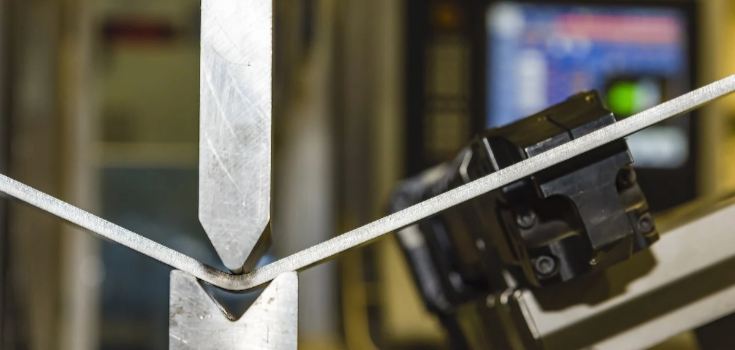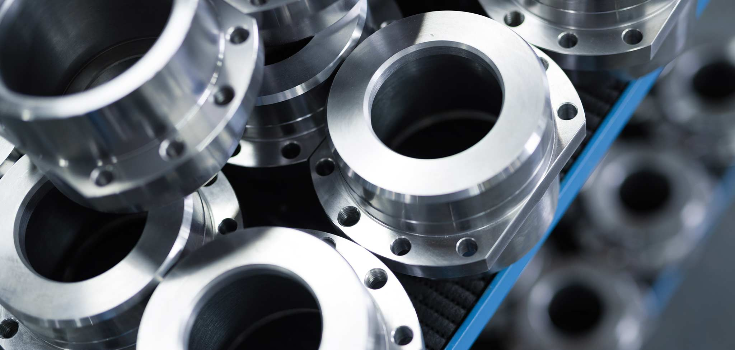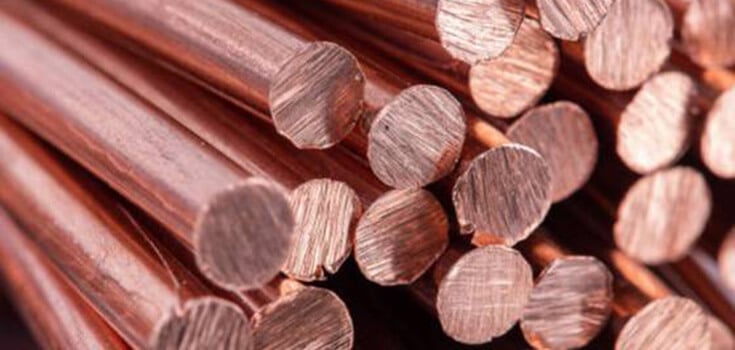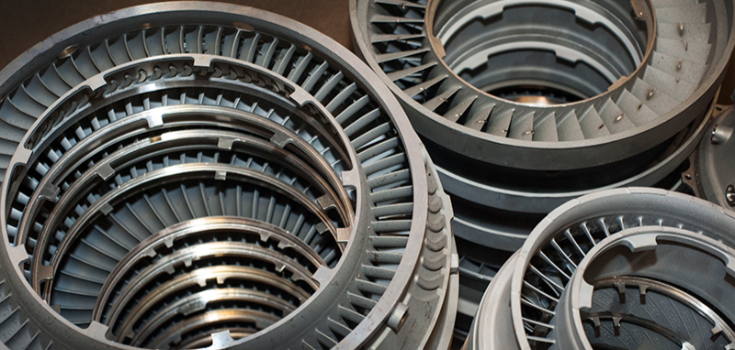Suppose you work in manufacturing, construction, product design, or engineering. You already know that choosing the right metal can make or damage your project. You might be looking for lightweight materials for aerospace parts, corrosion-resistant metals for marine applications, or high-strength alloys for heavy machinery.
This blog will help you quickly compare 24 essential types of metals, their properties, advantages, and common uses. So you can choose the perfect material for performance, cost, and durability.
What is Metal?
Metals are elements or alloys that conduct electricity and heat efficiently. They are usually shiny, flexible, ductile, and solid at room temperature. Metals are mostly set on the left side and center of the periodic table and play an important role in structural, mechanical, and electrical applications.
Metals are often grouped based on their foundation, composition, magnetic properties, corrosion resistance, and mechanical strength. Their atomic structure enables the flow of electrons, making them suitable conductors. On the other hand, metals are reusable, which provides their eco-friendliness in modern engineering and production.
Properties of Metals

Here are the most famous and useful features that define metals:
Electrical Conductivity: Excellent conductors of electricity. e.g., copper, silver
Теплопроводность: Easily transfers heat like aluminum, gold, etc.
Пластичность: Can be extended without breaking
Malleability: Easily pressed or rolled into sheets
Luster: Reflective surface, shiny appearance
High Melting and Boiling Points: Suitable for high-heat environments
Прочность на разрыв: Withstands pulling force without breaking
Твердость: Resistance to scratching, denting, and cutting
Плотность: Metals are heavy, except for a few, for example, magnesium, aluminum, etc.
Устойчивость к коррозии: Ability to survive oxidation and environmental damage (stainless steel, titanium)
These characteristics make metals flexible in fields covering from electronics to construction and heavy machinery.
What are the Types of Metal?
Metals are generally divided into two categories
- Ferrous металлы
- Non-ferrous металлы
What is Ferrous Metal?

Ferrous metals contain a significant amount of iron. If you work with them, you will notice they are magnetic and have high tensile strength. However, you need to secure them from rust and corrosion unless you choose a treated or alloyed version. The most common types of ferrous metals are carbon steel, cast iron, wrought iron, and alloy steel.
Applications of Ferrous Metals
Ferrous metals are used in different industries due to their strength and durability. Common applications include:
- Construction beams and steel rods
- Machinery frames
- Automotive frame
- Railway lines
What is Non-Ferrous Metal?

Non-ferrous metals do not contain iron. They are non-magnetic, lighter in weight, and often more resistant to corrosion than ferrous metals. These are a few non-ferrous metals. E.g., Aluminum, Copper, Brass, Titanium.
Applications of Non-Ferrous Metals
Non-ferrous metals are appreciated for their lightweight, corrosion resistance, and conductivity. Common applications include:
- Aerospace structures.
- Wiring and plumbing.
- Jewelry and decorative items.
- Heat exchangers.
Сайт Characteristics of Different Types of Metal Materials
Алюминий

Aluminum is lightweight. It is easily workable, reusable, and conducts heat and electricity well.
Steel (Carbon Steel)
Carbon steel is an alloy of iron and carbon. It forms the backbone of the modern framework. The amount of carbon affects the hardness and strength.
Инструментальная сталь
Tool steel is specially designed for high hardness and resistance to abrasion. It is used to make tools that cut, press, or shape other materials.
Высокоуглеродистая сталь

High carbon steel includes more than 0.6% carbon. High carbon steel also offers extreme hardness and strength, but with reduced flexibility.
Легированная сталь
Легированная сталь integrates other elements. For example, manganese, chromium, nickel, or vanadium to improve mechanical properties.
Нержавеющая сталь
Stainless steel contains chromium (typically >10.5%) that provides corrosion resistance. It is durable and easy to clean.
Вольфрам

Tungsten is known for its very high melting point (over 3400°C) and outstanding hardness.
Железо
Iron is a base metal and is mainly used in its alloyed forms. Pure iron is soft but becomes strong when alloyed.
Чугун
Cast iron contains 2-4% carbon, making it hard and brittle. It has good flexibility, which makes it proper for producing complex shapes.
Титан

Titanium is a strong, lightweight, and corrosion-resistant metal. It is biologically compatible, making it ideal for medical use.
Медь
Copper is an excellent conductor of electricity and heat. It opposes corrosion and is antibacterial.
Латунь
Brass is an alloy of copper and zinc, valued for its sound-related properties and corrosion resistance.
Бронза

Bronze is primarily made of copper and tin. It is harder/stronger than pure copper and resists wear.
Магний
Magnesium is the lightest structural metal. It has a high strength-to-weight ratio but is highly responsive.
Цинк
Zinc is used mostly for coating iron and steel to prevent rust. It is also a component in brass.
Кобальт

Cobalt is a magnetic metal used in high-strength alloys and recharges batteries.
Никель
Nickel is corrosion-resistant and is often used as a coating or in stainless steel production.
Хром
It is used for steel hardening and polishing. It is necessary for stainless steel making.
Вести

Lead is heavy, soft, and flexible with good radiation protection.
Олово
Tin resists corrosion and is typically used to coat other metals. It possesses a low melting point.
Кремний
Silicon, although not a metal, is a metalloid with metallic properties. It is important for the electronics industry.
Платина
Platinum is a rare and dense metal that is extremely resistant to corrosion and reactive.
Золото

Gold is a good conductor of electricity and very resistant to corrosion. It is valued due to its visual decoration.
Серебро
Silver has the best electric and thermal conductivity of all metals.
Applications of Metal in Various Industries
Metals are the backbone of modern industries. Their unique properties include strength, durability, conductivity, and resistance to heat or corrosion, which makes them essential in many industries.
The following are some important sectors in which metals hold an important position:
Строительство и инфраструктура

Steel, aluminum, and copper are used primarily in the building and civil engineering of structures, bridges, and pipelines.
- Сталь gives structural strength to stadiums and tunnels.
- Алюминий is chosen for lightweight roofing and window frames.
- Медь is used in plumbing, wiring, and roofing due to its excellent conductivity and resistance to corrosion.
Automotive and Transportation
From passenger cars to high-speed trains, metals ensure safety, efficiency, and performance.
- Steel and body panels are used for crash safety.
- Aluminum reduces a vehicle's weight for improved fuel efficiency.
- Magnesium and titanium are used in aerospace components for strength with no extra weight.
Аэрокосмическая и оборонная промышленность

Materials having high strength-to-weight ratios and high resistance to extreme environments are required for aircraft, spacecraft, and military equipment.
- Титан is an important material for jet engines and components of spacecraft.
- Алюминий alloys are the materials of choice for aircraft.
- Special steels и вольфрам are used for armor and weapon systems.
Electronics and Electrical Engineering
Metals are crucial for conductivity, heat dissipation, and precision.
- Медь и серебро are the conductors of choice for wiring, circuit boards, and connectors.
- Золото и platinum are used in high-performance electronics for their oxidation resistance.
- Алюминий is found in heat sinks and casings.
Medical and Healthcare

Biocompatible and corrosion-resistant metals keep patients safe and the devices reliable.
- Титан is used for implants, prosthetics, and surgical instruments.
- Нержавеющая сталь is widely used for surgical instruments and hospital equipment.
- Cobalt-chromium alloys are used in joint replacements and dental implants.
Choose DEK For Your Metal Machining Projects
Choosing the right metal is critical for performance in your project. DEK provides accurate CNC machining services across a variety of metal materials. We provide all the needs of custom prototypes or full-scale production. Our engineers help to analyze your design and choose the best material for your application.
We ensure that our promises toward quality, speed, and customer support meet all expectations for the execution of your metal machining projects. Metal must be selected properly for each project as it impacts both performance and durability.
Заключение
There are different types of metals you can choose from when manufacturing parts for various industries. At DEK, we are here to provide you with support in selecting the perfect material for your project. Свяжитесь с нами for professional CNC machining services today.
Вопросы и ответы
What is the softest metal?
One of the softest metals is cesium, which can be cut very easily.
What is a lightweight metal?
Magnesium is the lightest structural metal, followed by aluminum. Both are commonly used in the aerospace and automotive industries.
Which metals are available for CNC machining?
CNC machining involves the production of aluminum, brass, copper, stainless steel, carbon steel, titanium, and magnesium.
What is the difference between ferrous and non-ferrous metals?
Ferrous metals contain iron and are generally magnetic and strong. Non-ferrous metals lack iron, are lighter, corrosion-resistant, and often non-magnetic.
